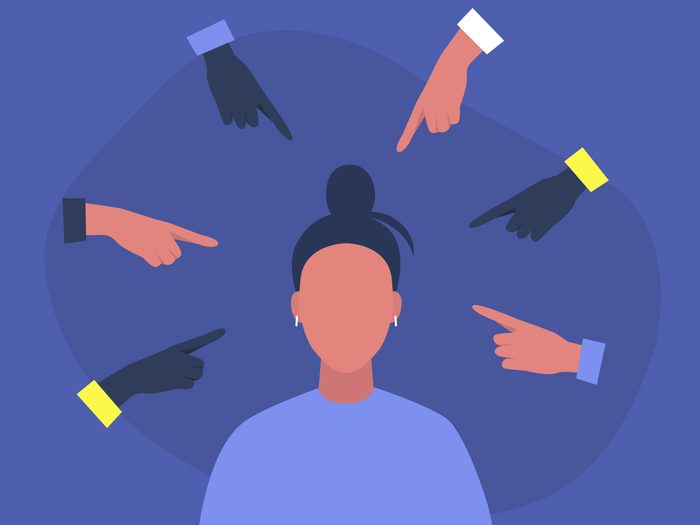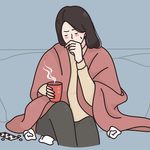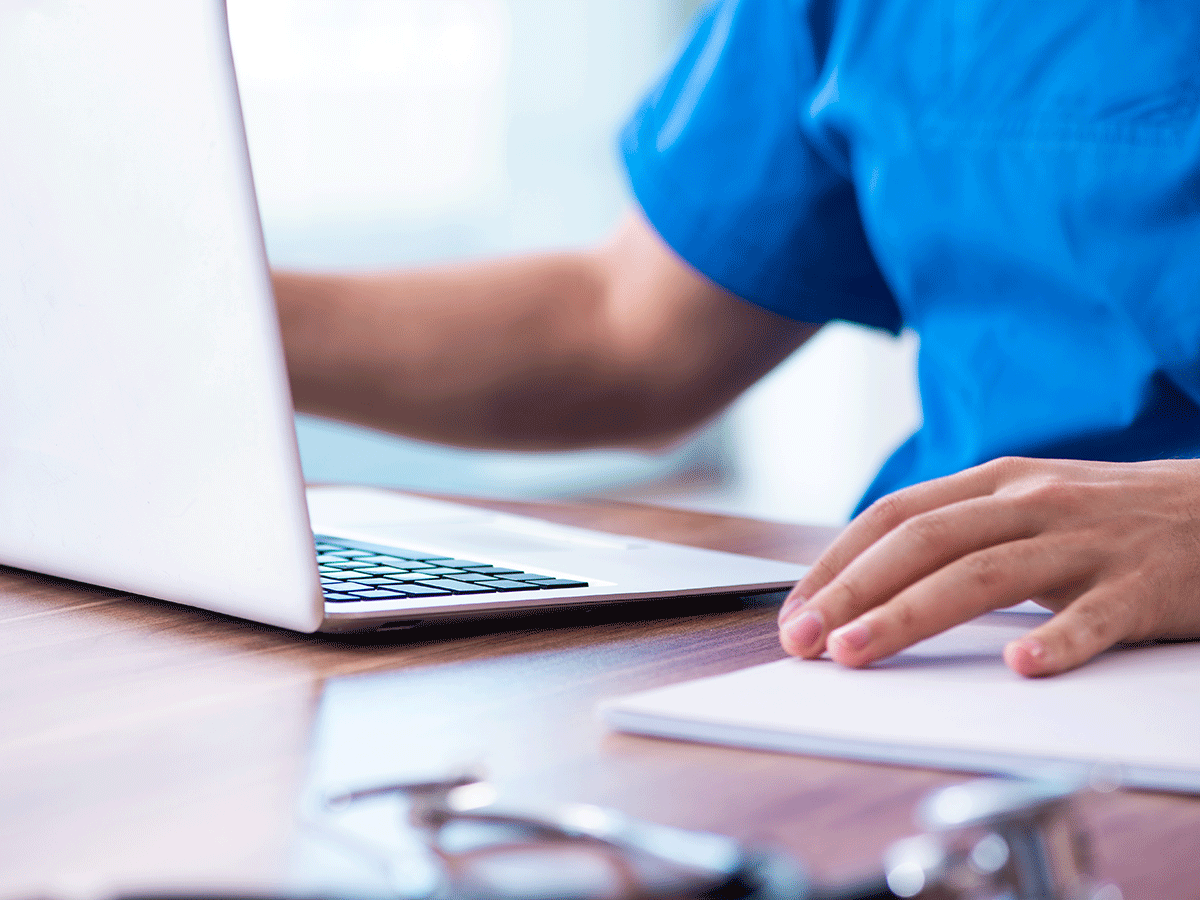“I Was Ashamed I Tested Positive for COVID-19”

Despite following public health guidelines, 23-year-old Monique Mulima contracted COVID-19. Then came the intense feelings of guilt and shame.
In June, I tested positive for COVID-19.
I was 23-years old, healthy and barely had a mild sore throat. I was tested as part of travel requirements after moving home to Canada from the UK, but never expected that I had actually contracted the virus.
Seeing the result on my phone, I felt an immediate sense of anxiety and dread—not solely about what this diagnosis could mean for my health, but also about having to text the guy I recently dated. We had met on the dating app Bumble, gone for a few drinks and a picnic date, but it hadn’t worked out. Now I had to tell him that because of our brief history, he needed to get tested for COVID-19.
I found myself apologizing to him over text messages. I knew it wasn’t my fault that I tested positive and I was doing the right thing by telling him to get tested, so why did I feel so bad about it?
My guilt didn’t end there. I began to question all the decisions I made prior to my diagnosis. Should I have met up with different friend groups? Should I have travelled domestically? Should I have been dating? My friends and I talked about COVID-19 often, but when I tested positive, I was too ashamed to tell most of them—even though I had followed public health guidelines.
At first, I felt alone in these feelings, but as I was isolating at home and scrolling through Twitter, I noticed other people were experiencing this same shame.
We need a word for the horrible guilty feeling of texting friends you saw at the weekend to let them know they may have been exposed to Covid
— Declan Cashin (@Tweet_Dec) June 22, 2021
I shared my feelings with Dr. Zahid Butt, an infectious disease epidemiologist and public health professor at the University of Waterloo. His research examines interrelationships between infectious diseases, social disparities, co-morbidities and substance use. He explained that I was experiencing internalized stigma, “which means that you feel that you have done something wrong or maybe it was some of your behaviours, that mean you caught that particular infectious disease.”
Essentially, since I blamed myself, I was assuming others would blame me, too.
Different people make different pandemic choices
Even when restrictions eased, I had some friends who remained wary of restaurants and opted to stay close to home. When I tested positive, one friend questioned my decision to travel. Another asked for details of where I had gone and what I had done, implying that catching the virus was the result of one of my choices.
Public health experts point out that some of the COVID-19 judgement stems from a difference in risk tolerance.
“There could also be shaming by others of people who become ill with COVID for taking risks that they themselves might not be willing to take, such as travelling or gathering in groups,” writes Laura K. Murray, a senior scientist at Johns Hopkins University’s School of Public Health. For me, even though my choices to date in-person and meet with people outside of my household were in line with public health guidelines, I still faced criticism because others did not make those same decisions.
(Related: Post-Pandemic: Coping With the Anxiety of a Changed World)
The repercussions of COVID-19 stigma
COVID-related discrimination and the resulting internalized stigma has been linked to depression and anxiety in COVID-positive patients. The shame can also cause COVID-19 patients to not inform their contacts, which leads to difficulties with contract tracing.
“In accurately tracking COVID experiences and COVID rates during the pandemic, we’re relying on people honestly disclosing this information,” says Alison O’Connor, a Brock University PhD student who co-authored a 2020 study investigating “health-related lies” during the pandemic.
The survey, published in the Journal of Health Psychology, found that people who contracted COVID-19 were more likely to conceal information about their symptoms, the fact that they had to quarantine and whether they had been adequately physical distancing before their diagnosis.
When I did end up telling my ex, select family members and my closest friends that I had COVID-19, many of the responses focused on what I did to catch the virus. Some assumed I must not have been taking precautions and others asked how I managed to catch it when case numbers were down.
Butt says there is a tendency to approach infectious diseases as us versus them. During the COVID-19 pandemic, he explains this mentality means that those who don’t have COVID believe since they don’t engage in risky behaviours, or they don’t look like certain groups, they will not get the disease.
The idea that only certain types of people catch COVID-19 adds to the shame and blame, and is especially problematic considering low income, racialized and Indigenous communities have been disproportionately impacted by the pandemic. And of course, this is in addition to the deplorable anti-Asian racism seen throughout Canada and other parts of the world during the pandemic.
(Related: How to Be an Ally to the Asian Canadian Community)
How we talk about infectious diseases
The us-versus-them mentality is a symptom of fear and it’s a response seen with other infectious diseases, such as HIV and other sexually transmitted infections (STIs).
Butt explained that since some of the initial diagnoses during the AIDS pandemic were in men who had sex with men, it created stigma. People thought the disease was related to homosexual practice, even though HIV can impact anyone, regardless of gender or sexual orientation. At the time, this discrimination was perpetuated by public health advice that public health journalist Carrie Arnold describes as “largely moralistic and shaming,” such as advising gay men to abstain from sex instead of recognizing that sex is a part of life and looking at ways to reduce the risk of that activity.
Experts interviewed by the Canadian Medical Association Journal (CMAJ), noted that politicians benefit from shifting the blame of COVID-19 onto individuals, such as young people gathering in parks, because it distracts from larger issues, like overcrowded transit routes for essential workers. At the same time, singling people out does not ultimately help public health.
“It’s actually self-defeating because it makes the person feel inadequate or like they’ve failed at something, and therefore takes away their incentive or sometimes even their ability to make a change for the better,” Ian Culbert, executive director of the Canadian Public Health Association, told the CMAJ.
(Related: 9 Common Tricks for Avoiding Germs That Actually Don’t Work)
Reducing shame and stigma around COVID-19
Candice, a Vancouver-based baker, received a similarly negative response from individuals in her community after her COVID diagnosis—which is why she asked that her identity be concealed. After restrictions loosened in May, Candice began to reconnect with family and friends in-person. A few weeks later when she and her husband tested positive for COVID-19, she immediately began reaching out to contacts to try and prevent further spread.
While many people were concerned and caring, she also received negative messages. Some called her an “embarrassment” and implied she had knowingly spread the virus.
“I understood their anger, but at the same time, it was one of the worst moments to live through and their comments made me feel like I was being kicked while [my husband and I] were down at our lowest point,” she says.
Butt emphasizes that is important for people to remember that anyone can catch COVID-19 regardless of their choices—and that no one deserves it. I am grateful to be fully recovered and healthy now, but the pandemic is still not over. My hope is that by encouraging compassion and understanding towards COVID-positive patients, we can help stop the spread of the virus and the stigma.
Next, read what experts want you to know about COVID variants in Canada.




